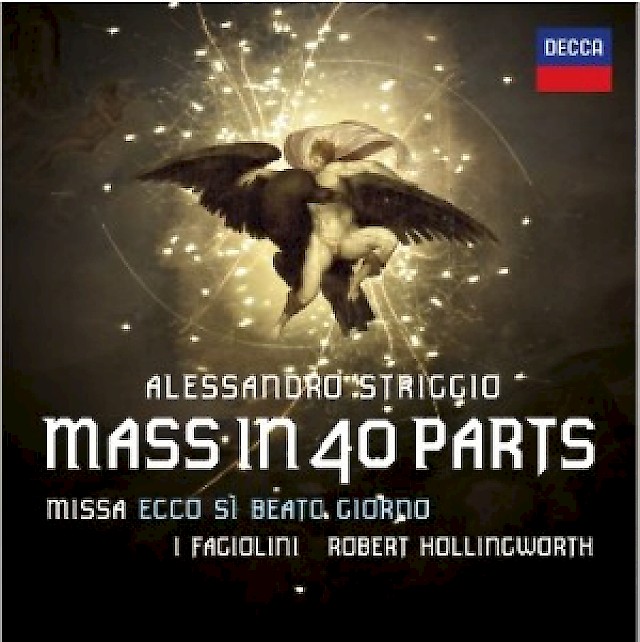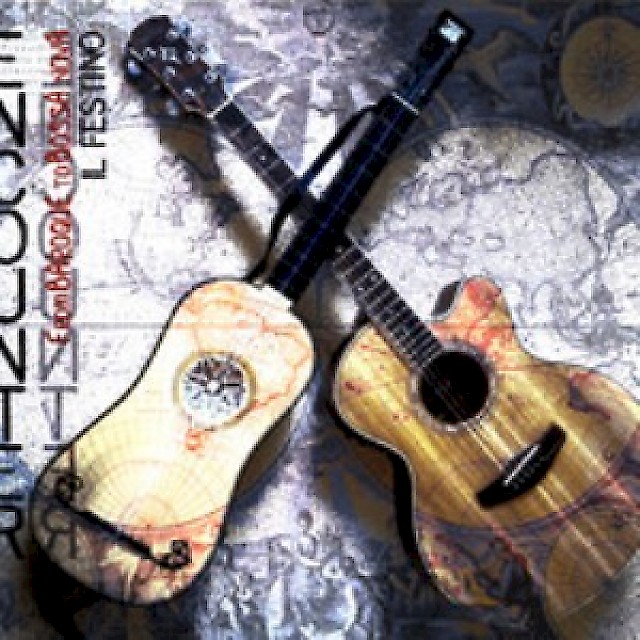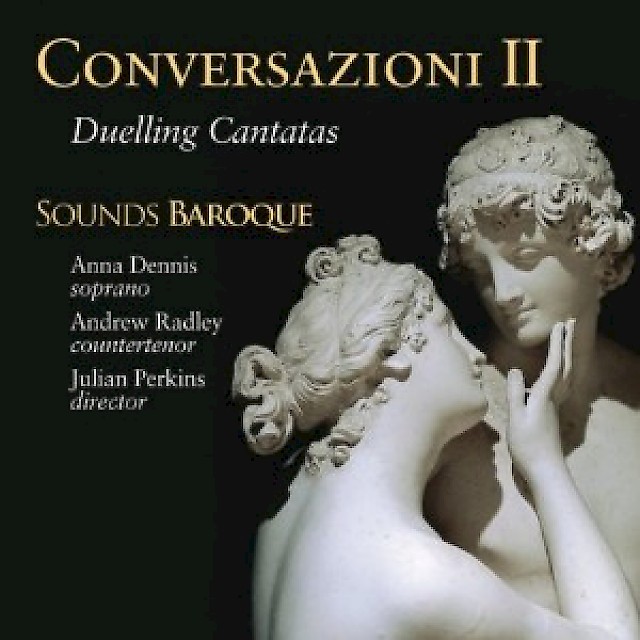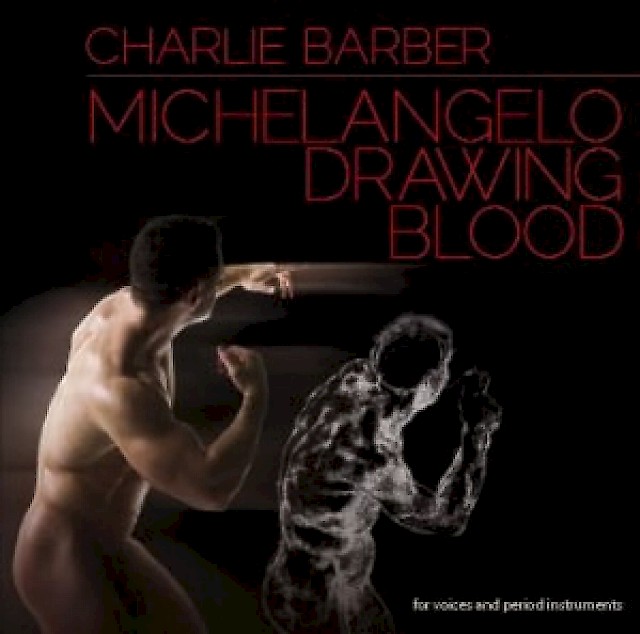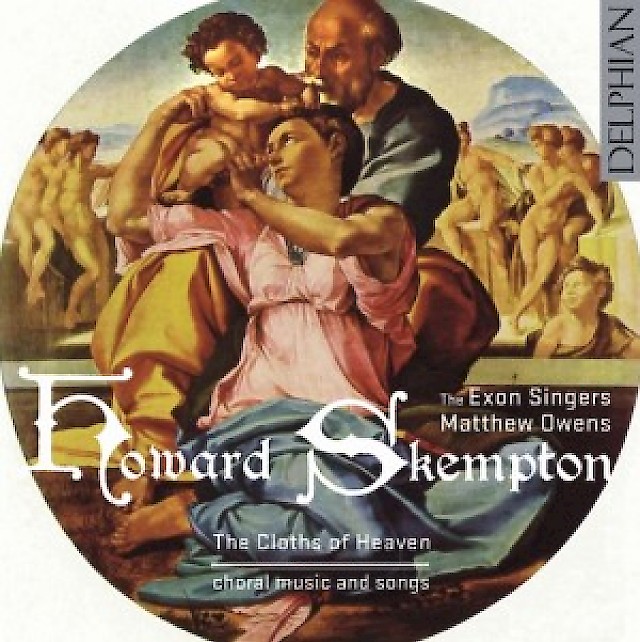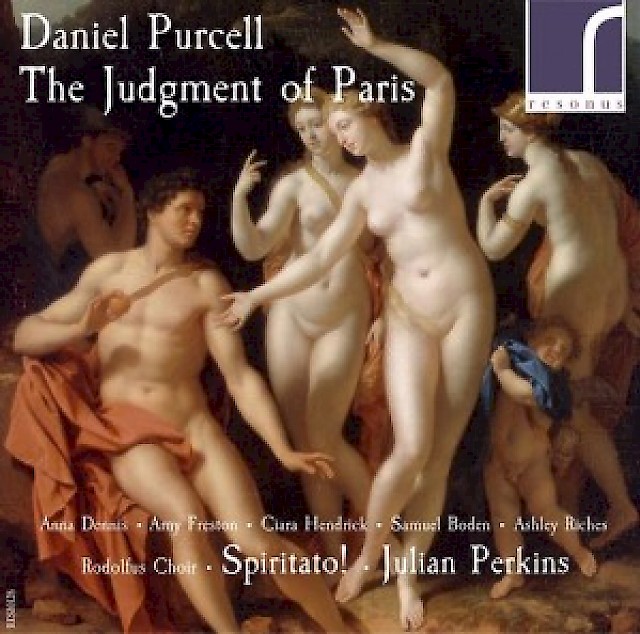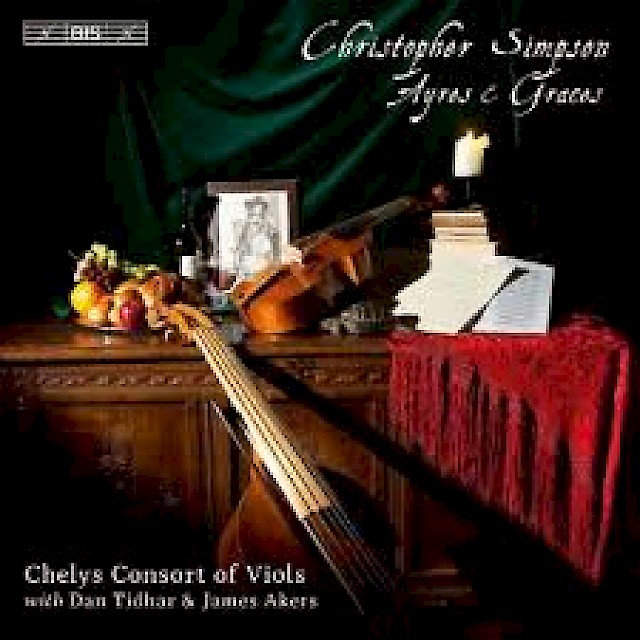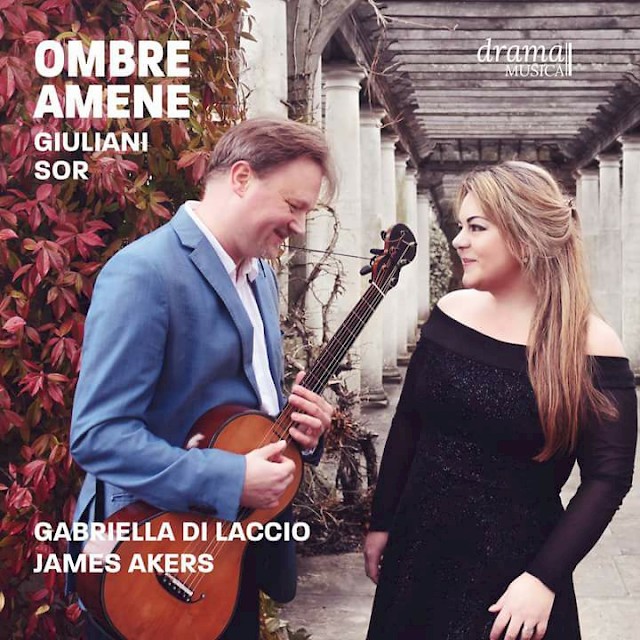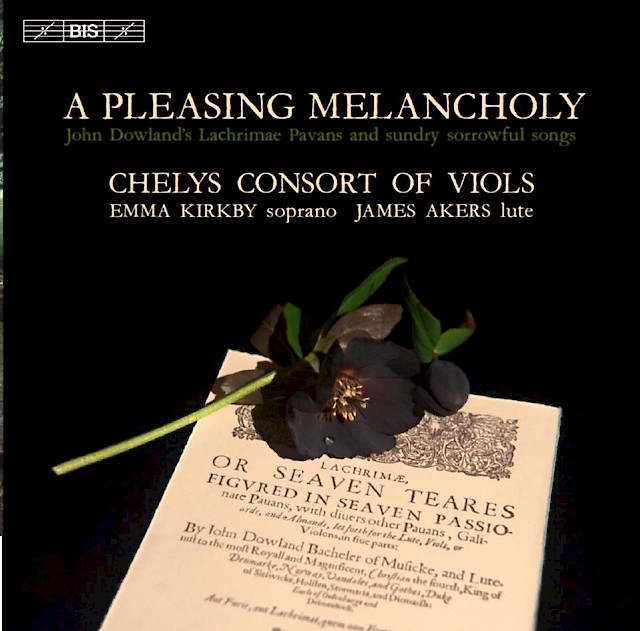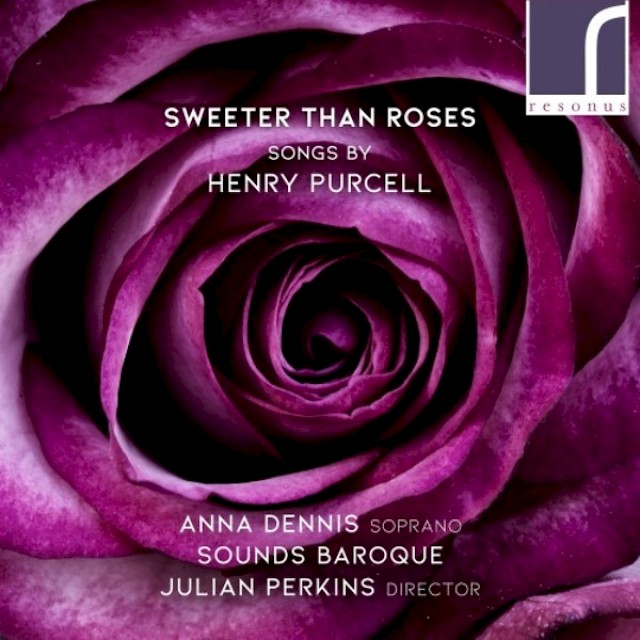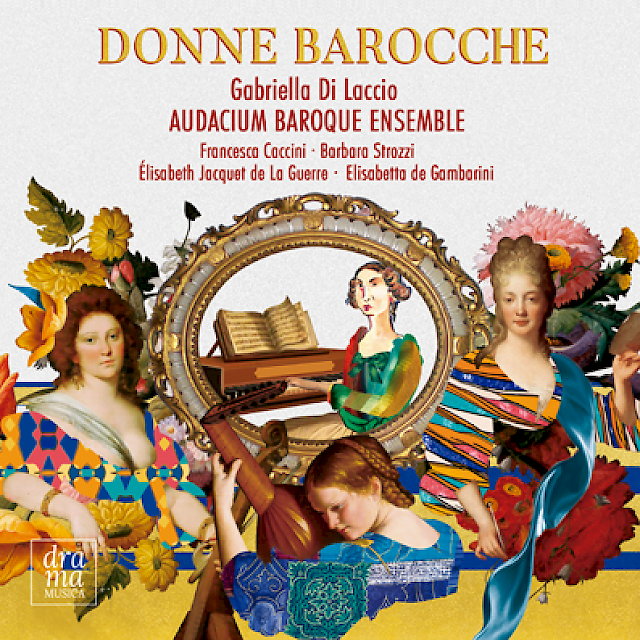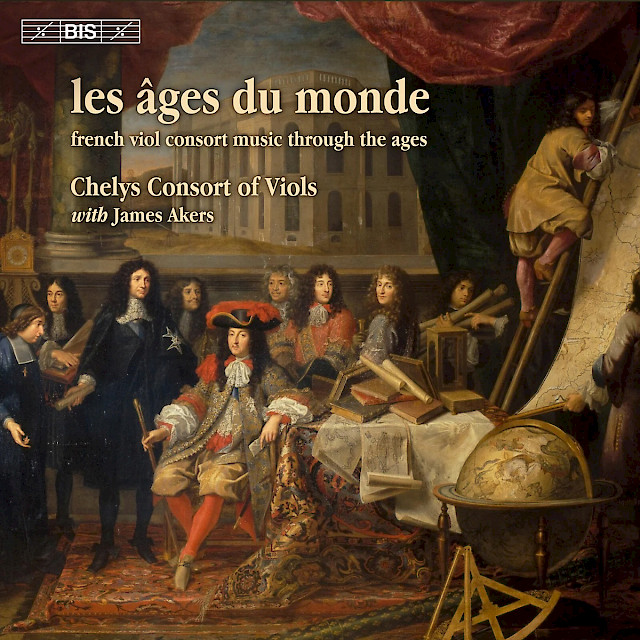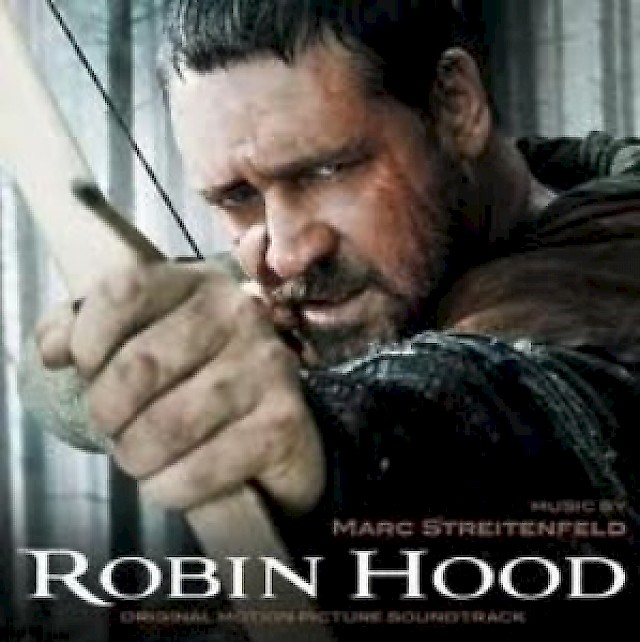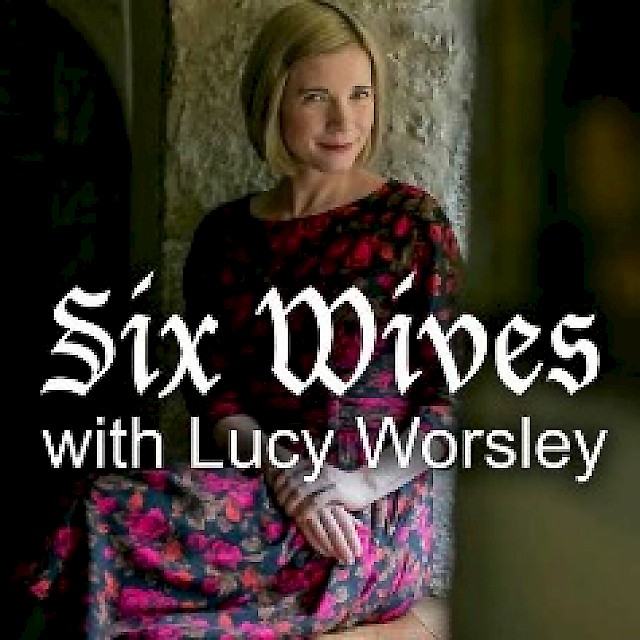Thesaurus Harmonicus
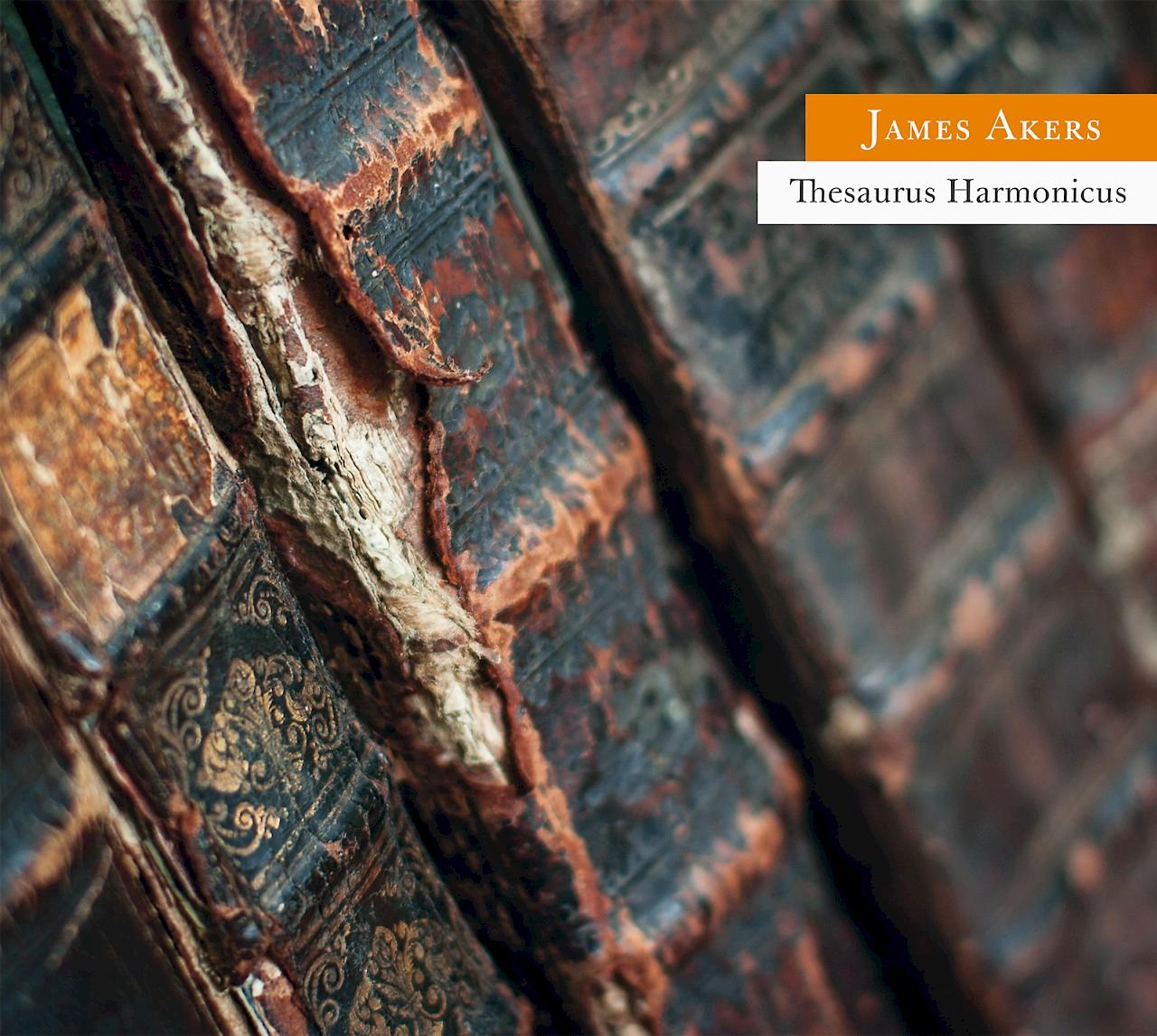
"This is difficult but attractive music and Akers is to be congratulated for bringing it to life in a truly musical way" John Reeve- Lute Society Journal
Jean-Baptiste Besard (c.1567-c.1620) published the Thesaurus Harmonicus in Cologne in 1603. It is an almost encyclopaedic collation of early 17th century lute music containing pieces by twenty-one credited composers from throughout Europe, along with many un-credited and anonymous works. These are organised into ten books, according to genre, and there is also a manual on lute playing, suggesting the publication had a didactic purpose. Most of the music is for solo lute, though there are also pieces for lute and voice and lute ensemble.
Although he composed roughly one tenth of the pieces in the Thesaurus Harmonicus, Besard was not a professional musician. Educated in law and medicine at the Universities of Dôle and Heidelberg, by around 1600 he had established himself as a lute teacher in Cologne, while continuing to practice as a lawyer and doctor. It has been suggested that he paid for the publication of the Thesaurus by working as an editor of legal texts for his publisher Grevenbruch. Besard later moved to Augsburg where in 1617 he published a second book of lute music, Novus partus, and an expanded edition of his lute tutor in German. Nothing further is known of Besard after this date.
Attempting to condense a collection of music as vast as the Thesaurus Harmonicus into a one hour length recording is a seemingly quixotic endeavour and this in no way claims to be a comprehensive survey of the text. The pieces were chosen for purely personal reasons as being the most interesting, moving and outstanding works I discovered while exploring the book. Much more has been left out than is included in this collection, my intention being to create an expressive musical programme rather than an academic overview.
The Thesaurus Harmonicus contains some of the best-known lute music along with some of the most obscure. Both are presented here. The pieces by Dowland are probably the most famous works for lute, though they contain subtle variations that should make them interesting to even the most experienced listener. Many of the pieces in the collection are extremely short, especially the dance tunes. Tracks 2 and 14 are both formed of three shorter pieces put together to create a longer structure, using one of the dances as the theme in a rondo-esque structure.
14_3_voltes.mp303_canaries.mp316_branle.mp3|02_soldiers_edit_1.mp3Buy NowThe Soldier's Return
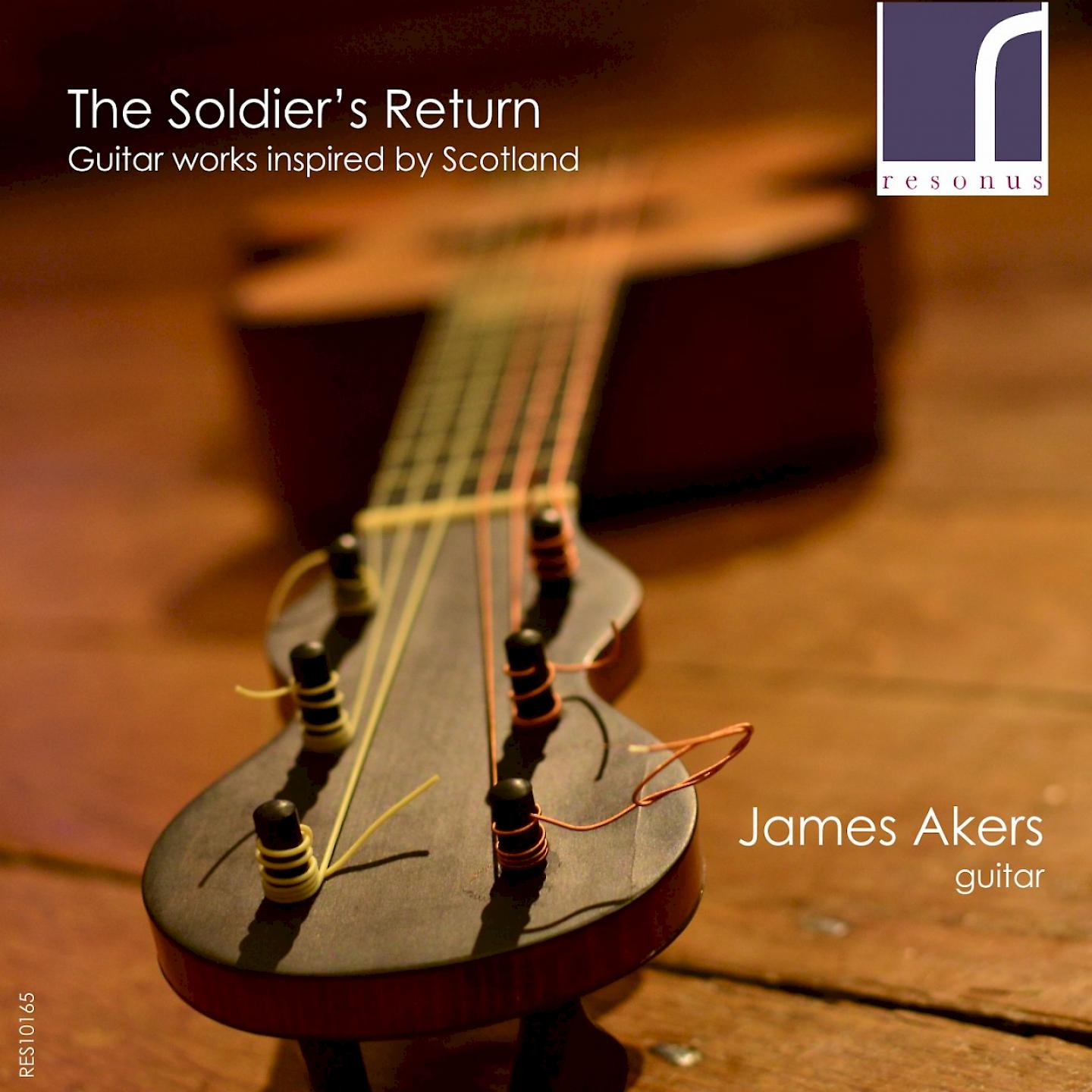
Music for romantic guitar inspired by Scotland, including pieces by Sor, Giuliani, Mertz and Legnani all with a Scottish connection.
To purchase a copy, various formats are available here
Some notable reviews of The Soldier's Return:
"If you’re used to spotlessly silky performances of fruity Spanish pieces on big modern guitars, this may take a couple of listens to recalibrate. The salon instrument of the early 1800s has a more intimate sound: boxy, dry, but warmer and richer-hued, especially played as here on gut(-type) strings, with fingertips rather than nails (which took over during Segovia’s time). It’s a small soundscape, but when played with such beauty, taste and subtlety, an utterly enchanting one. The music – accomplished if not daring works by guitarist-composers of the day – was inspired by Scotland, then big on the aesthetic radar, but evokes the touching, delicate poetry of Robert Burns rather than the stormy epics of Walter Scott. Mertz’s dreamy, Barrios-like Fingal’s Cave is the most distinctive composition, though some tunes prove surprisingly familiar (there’s Auld Lang Syne and Polly put the kettle on hidden here).
Akers’s range of tones is wonderful – hints of bagpipes in Country Bumpkin, of horns in La Marcia, and so on, and utterly enchanting colours in Coming through the Rye. He sprinkles modest works with magic dust. To explore the charming world of the guitar’s first golden age, you won’t do better than this lovely disc." —BBC Music Magazine ****
"What happens when the expansive romantic visions of an ‘exotic’ Scotland such as one finds in Beethoven, Rossini, Mendelssohn or Verdi are reduced to the tiny sound world of the Romantic period guitar?Quite a lot, as it turns out. For those 19th-century guitarists who sometimes moved in the same circles as the above composers, the novels of Walter Scott, the poems of Robbie Burns and indeed all things Scottish were an equal source of inspiration. Mauro Giuliani, Luigi Legnani, Johann Kaspar Mertz and the great Fernando Sor all arranged Scottish songs and dances or wrote sets of variations on Scottish themes. And far from feeling disadvantaged by the modest means of expression at their disposal when compared with a piano or a symphony orchestra, they relished their instrument’s ability to portray the bittersweet qualities of Scottish melodies while realising the music’s potential for metamorphosis and subtle drama. Scottish lutenist and guitarist James Akers, who here plays three original or copies of Romantic period guitars, is an experienced continuo player in both orchestral and operatic contexts. It could therefore be said that this music is his not only by birthright but by dint of his ability to bring the lyrical, cantabile and colouristic aspects of, say, Baroque opera, to the table when performing such music. And so it comes to pass, with Akers imbuing, for example, the insouciant virtuosity of Legnani’sVariations on Rossini’s ‘Oh quante lagrime’, the wistful beauty of Giuliani’s Coming through the rye and the melancholic theatre of Mertz’s Fingal’s Cave with all the warmth, colour and expressive richness one could hope for".—
Gramophone
"Resonus is a new one on me, but have recently sent me a charming collection of albums exploring interesting highways and byways of solo and chamber repertoire. Of which, for me, the most memorable is The Soldier’s Return , extremely well played by James Akers, an experienced recitalist, and lecturer in plucked instruments at the Royal Scottish Conservatoire. What he has done is collect an hour’s worth of guitar music inspired by Scotland, not a note of which I had ever heard previously. Much of it is by Mauro Giuliani, though as far as I am aware, never visited Scotland, but Scottish melodies (which were after all set by Beethoven) were in regular circulation in early 19th century Europe, and Akers has found half a dozen of them – stuff like The Blue Bells of Scotland and expanded them a bit to make engaging concert items. There’s also a Hungarian guitarist Johann Kaspar Mertz's take on Fingal's Cave . I don’t suppose he went there either, while of course Mendelssohn did, which may account for the fact Mendelssohn’s piece is far more vivid than Mertz’s. The highlight here is Fernando Sor’s Variations on a Favourite Scottish Scene . The scene is Ye Banks and Braes o' Bonnie Doon , which sounds really good on this charming seven minute piece, that I shall certainly be playing within the next few weeks on my Sunday evening programme. Well done Resonus. I look forward to receiving more enticing albums from you."— David Mellor, Classic FM
"As lecturer in early plucked strings at the Royal Conservatoire of Scotland, James Akers has put together an intriguing programme of romantic guitar music inspired by the traditional music and landscapes of Scotland. In the wake of the vogue for all things Scottish which followed the publication of James MacPherson’s Ossian material, composers throughout Europe tried their hands at Scottish (or perhaps Scot-‘ish’) music, and Akers’ programme includes music by the Italian-born guitarist Mauro Giuliani, Italian opera devotee and guitar virtuoso Luigi Legnani, Spaniard Fernando Sor, and the German guitar virtuoso Johann Mertz. While the latter attempted like his compatriot Mendelssohn to recreate the Scottish landscape, and more specifically Fingal’s Cave, in music, the others wrote pieces in imitation of or variations upon Scottish airs.
Employing a period guitar and two modern reconstructions, Aker’s employs his own considerable virtuosity to bring this neglected seam of music to vivid life, and he certainly captures the enthusiasm these composer’s poured into their subjects as well as hinting at the stunning techniques they must all have demonstrated as players. The warm tone of the authentic instruments is a further factor in the success of this CD. Just occasionally I feel that Akers doesn’t fully trust the resonance of his instruments, moving on too soon from some chords in the slower pieces when I would have liked him to linger just a little, but generally speaking this is a revelatory and engaging CD of music which is nowadays almost entirely unfamiliar. Akers’ erudite and wide-ranging programme notes are a real bonus."— Early Music Review *****
"I confess that before this CD showed up in my mailbox, I had no idea that Scottish music and literature had been so influential on classical composers. Yet here is an entire CD, by the great Scottish guitarist Jamie Akers-best known for his work with period instruments (or contemporary versions thereof))-in which he plays multiple works by Giuliani and Legnani and one each by Sor and Mertz, all with links to Scotland. Most are drawn from or inspired by ageless Scottish Folk tunes, and two were adapted from themes from Rossini operas based on Scottish writer Sir Walter Scott's famous poem The Lady of the Lake (La Donna del Lago). All in all, it's a wonderful and attractive program, full of lilting and sonorous melodies; simple on some levels, but definitely requiring some virtuosity, as well. Akers' nicely written notes provide plenty of context for the music on thie fascinating and easy-to-enjoy project." Classical Guitar Magazine
Click play below to hear Jenny's Bawbee, a Reel, arranged by Mauro Giuliani, performed on a terz guitar, an excerpt from The Soldier's Return
06_jennys_edit_1_rev1.mp3Classical Vienna
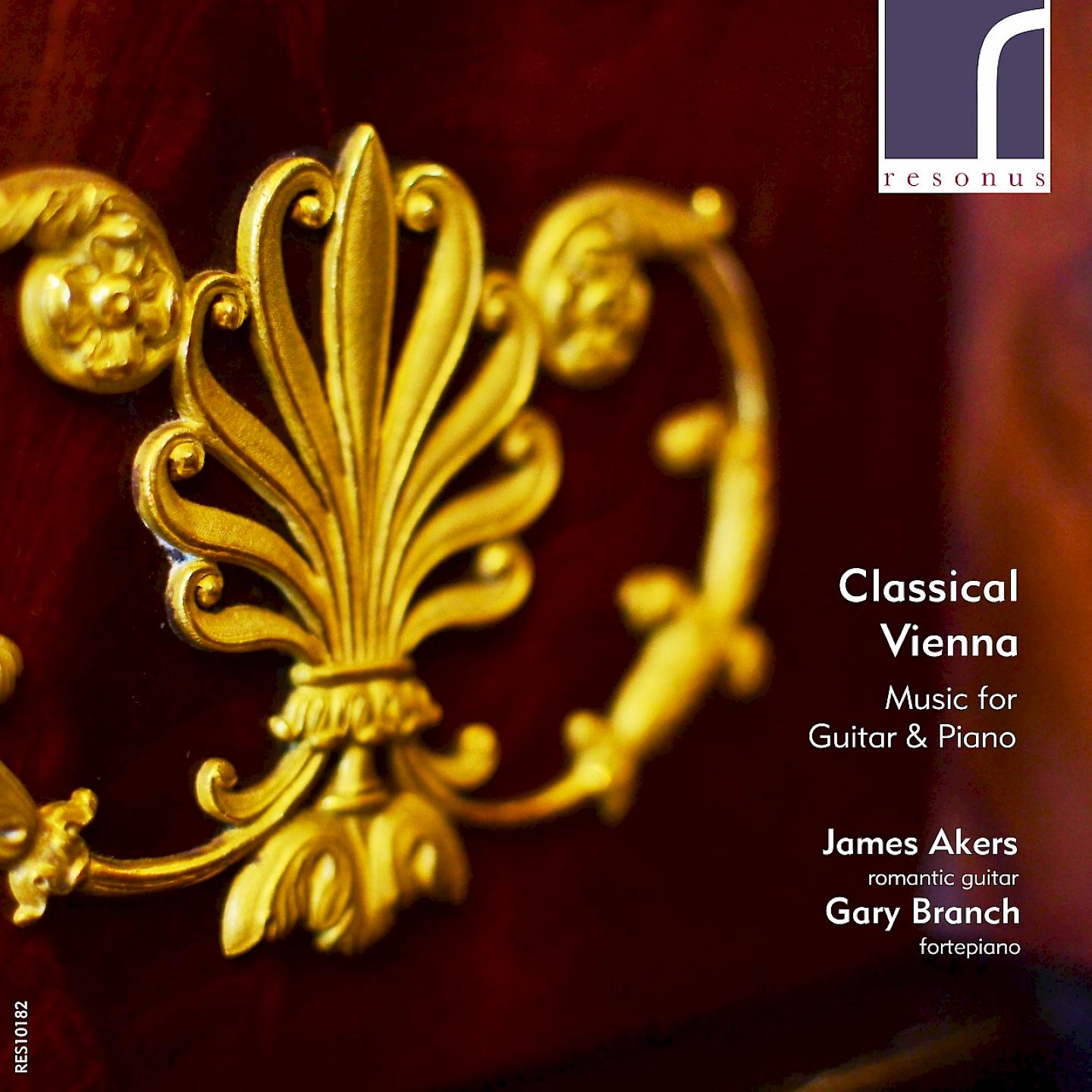
Music for forte-piano and romantic guitar with pianist Gary Branch playing an original Graf instrument from the 1820s. Featuring pieces by Diabelli, Giuliani, Carulli and Moscheles, it was one of the last recordings to be made in the historic setting of Finchcock's Musical Museum in Kent, England.
Available here
By Benjamin Dunham from Early Music America
"CD REVIEW — When this disc first begins to spin, the listener is embraced by the most wonderfully delicate and engaging texture — on period guitar and fortepiano — two sounds not too dissimilar but whose ictus are distinct: a manicured hand in a fitted leather glove.
Scottish guitarist James Akers, playing an original 1820s instrument by Saumier and a modern Panormo replica by James Cole, and British pianist Gary Branch, playing an 1826 Conrad Graf fortepiano from the Richard Burnett Heritage Collection of Early Keyboard Instruments, present an inviting program of music that might have been heard in Viennese salons in the first half of the 19th century.
For this listener, the real find among the composers is an exact contemporary of Beethoven, Fernando Carulli (1770-1841), a truly musical spirit with a song in his heart. His three pieces form the spine of the program: beginning, middle, and end. Nocturne No. 1 is sprightly in mood, not luminal. Nocturne No. 2 is a gallant march fit for elves. The Variations on Themes by Rossini explore the simple radiance of “O, mattutina albori” from La donna del Lago and concludes with spirited changes on a theme from La Gazza Ladra.
While the Sonata for Piano Forte and Guitar, Op. 71, of Anton Diabelli (1781-1858) may be heard mostly as a recommendation of his prowess as a music publisher, the solo piano Fantasia on “Potem Mitzwo!” in F minor by Ignaz Moscheles (1794-1870) is truly remarkable. This probing musical commentary on a Jewish funeral lament was published in 1804, when the prodigy was 10. He could hardly be expected to plumb such depths. It is possible that the 1803 death of his 16-year-old half-sister, Rebeka, prompted this early inspiration (thanks, Ancestry.com!)
The disc includes two works of Mauro Giuliani (1781-1829), a guitarist-composer whose music is seldom overlooked on guitar recordings, and for good reason. His Sonate Brillante for solo guitar, Op. 15, whose first movement Julian Bream arranged and recorded, is given a subtle, colorful reading, if without Bream’s bravura. The Variations on Paisiello’s “Nel cor più non mi sento” are worth hearing; the finale, “Polonaise,” will get your feet tapping."
By D. James Ross from Early Music Review
"This charming CD takes us evocatively into the Viennese salon of the early 19th century with a programme of domestic repertoire for guitar and fortepiano. It is a genre of which I was hitherto completely ignorant, and the surprise is how well the sounds of period fortepiano and romantic guitar blend, a powerful argument if such needs to be made for the correct use of period instruments. This might incidentally be the moment where I lament the demise of the Finchcocks Museum, where this recording was made, making it the last in a noble tradition. Knowing nothing of the circumstances, I feel that its almost unique assemblage of period keyboard should perhaps be the sort of resource that should be saved for the nation. The 1826 Conrad Graf fortepiano featured here offers a delightful range of tone qualities, while James Akers’ original 1820 Saumier guitar and a 2015 Panormo copy have a distinctive and gentle timbre. Incidentally both the fortepiano and the guitars also get a chance to shine in solo repertoire. With the exception of Diabelli (he of the variations) and the ubiquitous Moscheles, who seems to have sat at the centre of music-making in this era like a spider at the centre of a Europe-wide web, the other two composers represented, Ferdinando Carulli and Mauro Giuliani, are unfamiliar. Their music is jaunty and tuneful rather than profound, but understandably this was the sort of repertoire the Viennese who attended operettas and waltzed the night away at the city’s year-round balls wanted to play and hear in their drawing rooms. As in previous programmes, James Akers demonstrates great musicality and an awesome technique, while his partner Gary Branch handles the various features of the Graf fortepiano with panache, making it sing beautifully or almost whisper depending on the requirements of the music. The intimate acoustic of Finchcocks is probably just right for this repertoire, and if you feel rich enough you can plan your own concerts and recordings there as the property is currently for sale.this repertoire, and if you feel rich enough you can plan your own concerts and recordings there as the property is currently for sale."
*****
By Blair Jackson from Classical Guitar Magazine
"Yes, this is all music from Vienna in the first quarter of the 19th century, but, with a single exception, it is an all-Italian program, with pieces from Ferdinando Carulli, Mauro Giuliani, and Anton Diabelli, (the fourth composer is Bohemian pianist Ignaz Moscheles)—all of whom thrived in Vienna during that era. Still, there is nothing here that “sounds” Italian; rather the pieces are standard Classical-era pieces, redolent with the influence of Mozart and others, and in the case of Moscheles’ moody Fantasia, Beethoven. Akers plays a pair of Romantic guitars—one an 1820 instrument by Saumier, the other a 2015 Panormo replica by James Cole. The pianoforte dates back to 1826. The piano tends to dominate the sound, though the distinctive “period” guitar adds much throughout, and also gets its solo slot on the Giuliani Sonata Brillante. A wonderful disc that will brighten anyone’s day!
Le Donne e La Chitarra
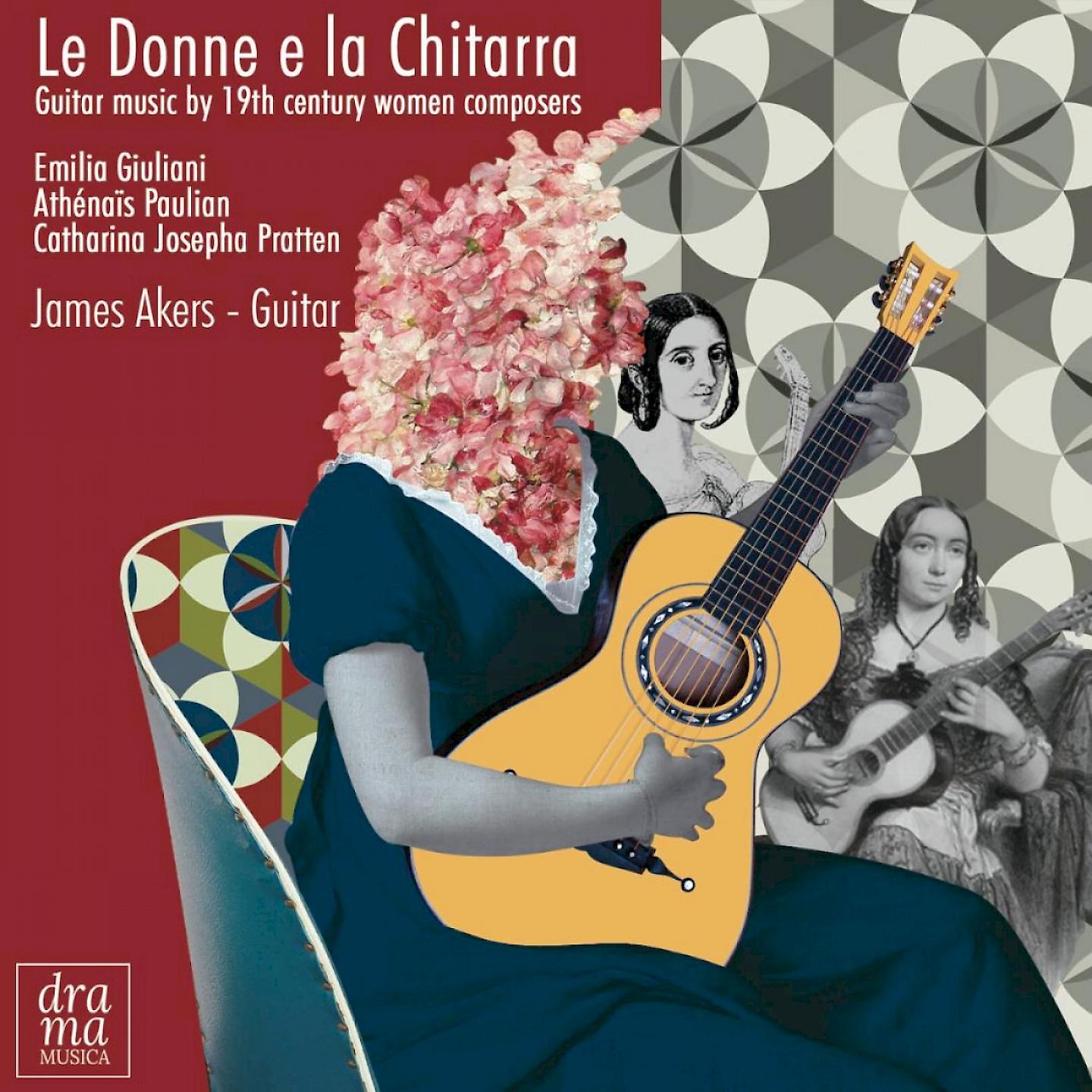
My latest solo project, now available to buy here, featuring many premier recordings of neglected works by women composers of the 19th century.
If the conventional historical narrative of the guitar caused the neglect of a great deal of music, the composers featured on this recording suffered the added adversity of being women in a male dominated world. They were overlooked by history, occasionally referenced, footnoted as anomalies but rarely championed or performed. However, to say these women lived lives devoid of appreciation is to do an injustice to their times.
Madame Sidney Pratten (1821-1895) toured Europe as a child prodigy, was well known in English society and was the subject of a glowing biography. Athénaïs Paulian (1802-c.1875) was a friend of many of the leading guitarists of the day and dedicatee of numerous works; while Emilia Giuliani (1813-1850) shared the stage with Franz Liszt and was judged his equal by audience and critics alike. This recording aims to address this imbalance and allow their music to be heard afresh.
By Blair Jackson for Classical Guitar Magazine:
'Bravo the prolific Scottish guitarist James 'Jamie' Akers for shining a light on three 19th century women composers on his fantastic new album: Emilia Giuliani (1813–1850), Athénaïs Paulian (1802–c. 1875), and Catharina Pratten (a.k.a Madame Sydney Pratten. I knew nothing about any of them (though I’d heard of Giuliani and Pratten) and I came away extremely impressed. In his fascinating and provocative liner notes essay, Akers notes that while the three composers suffered the adversity of being women in a male-dominated world and thus overlooked and “rarely championed or performed. . . to say these women lived lives devoid of appreciation is to do an injustice to their times. Madame Sydney Pratten toured Europe as a child prodigy, was well known in English society, and was the subject of a glowing biography. Athénaïs Paulian was a friend of many of the leading guitarists of the day and a dedicatee of numerous works; while Emilia Giuliani shared the stage with Franz Liszt and was judged his equal by audience and critics alike.” But it is also true that eight of the 14 pieces on this album are premiere recordings, so that would seem to confirm that their work has been largely forgotten.Those of you who know Akers’ work are aware that he prefers to play on period guitars or replicas; on this album he expertly wields a c. 1820 Saumier, along with a 2015 Panormo copy by James Cole, and a 2012 Stauffer copy by Scott Tremblay. All are expertly captured by engineer John Taylor.
It’s a thoroughly delightful album from top to bottom, very much a 19th century recital. Giuliani (the illegitimate daughter of guitarist-composer Mauro Giuliani) has the most pieces on the album—seven of the 14—and for my money is the most interesting of the three composers, perhaps because her four Preludes feel slightly less wedded to musical conventions of the era, and her artful pastiches based on operatic themes by Rossini and Vincenzi Bellini (a new name to me) and so intriguingly constructed. But this not to slight the other two women in any way. Pratten’s Rhapsody Funebre and, especially, her Malbrook Fantasia both go to some interesting and compelling places. The latter has an austere opening that sounds slightly Beethovenian and also employs some nice harmonics punctuation. Also notable is Pratten’s piece Elfin’s Revels, in which a “narrator” (Chiara Vinci) reads a short fantasy poem one line at a time, followed by a brief musical interpretation of that line played by Akers, such as “Frisky gnomes frolicking about” or “Now they are running after each other.” The effect is charming. And Paulian’s writing shines on her Mozart variations (on a theme from The Magic Flute) and her effervescent, nicely melodic variations on a pair of Italian songs with which I was not familiar.
Highly recommended!'
By Karine Heatherington from the Cross-Eyed Pianist:
'He played works by Emilia Giuliani (1813-1850) who shared the stage with Franz Liszt, and Athénaïs Paulian (1801- c.1875) who was a child prodigy, was well known in British society and had a biography written about her. Prelude 2 by Giuliani was particularly appealing; however Akers’ delicate, dexterous playing could have benefited from some amplification in the church. I listened to extracts from his Le Donne et la Chitarra CD later and was struck by the colour and expression he brought to each work.
Highly recommended'
19th century guitar music by Ivan Klinger
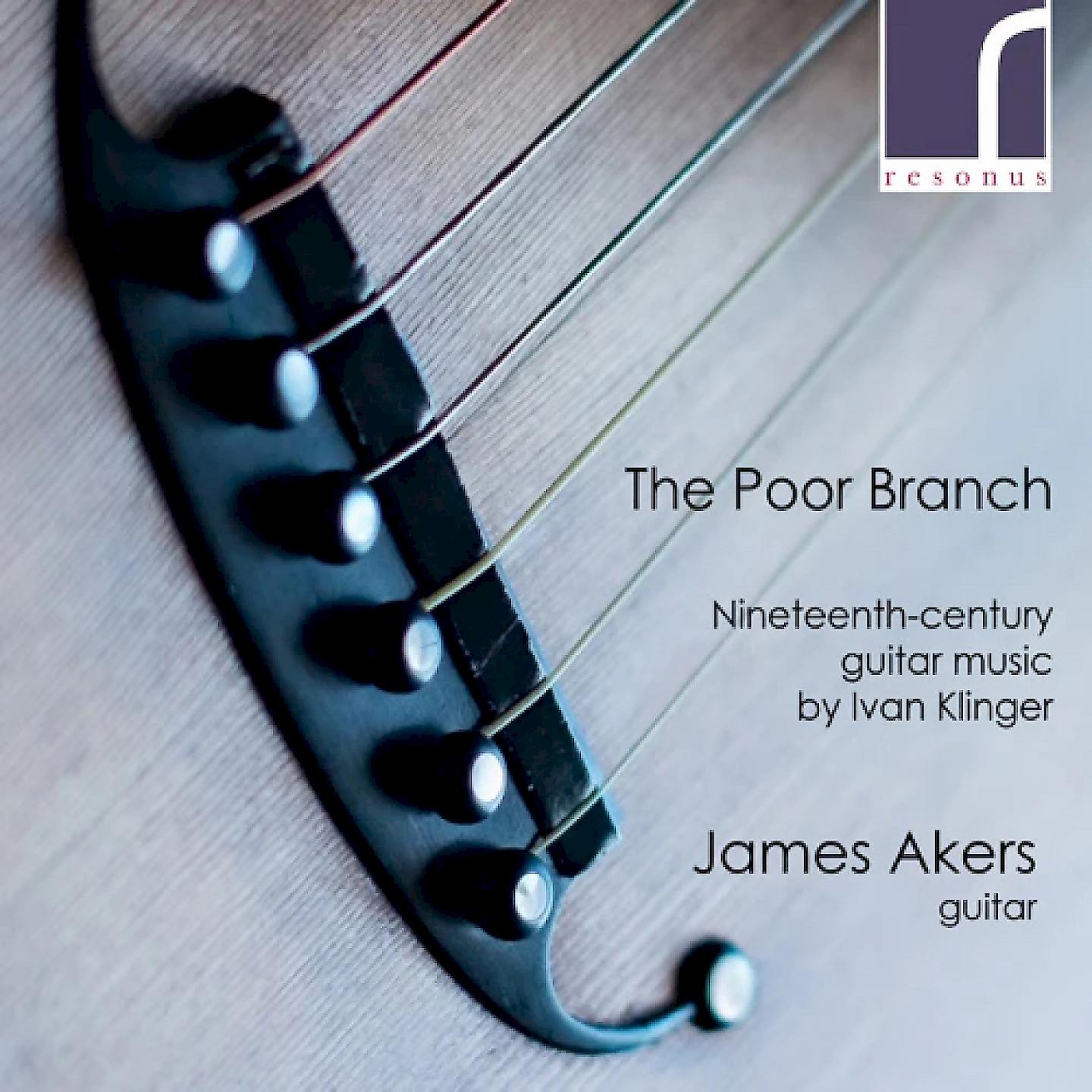
From Lark Reviews:
"This release of premiere recordings of guitar music by Klinger (1818-1897) is lovely. There is a timeless quality to the sounds of a solo guitar and here, in original compositions and arrangements, this music, from an area now part of Ukraine, this music from a relatively obscure composer has been given new life by James Akers who seems very at home with it. An enjoyable release.
By Stewart Mccoy from Early Music Review:
"Ivan Andreevich Klinger (1818-1897) was born in Kherson, Ukraine. His guitar music is little known today, although much of it is available online at IMSLP. Unlike so many of his contemporaries from his part of the world, Klinger wrote for the six-string classical guitar, or Spanish guitar, rather than the Russian seven-string guitar with its characteristic open G tuning of DGBdgbd’. Klinger’s music is very easy on the ears – charming melodies decorated with occasional chromatic inflections and virtuosic interjections – arpeggios, harmonics, changes of tempo, glissandos, but always lyrical, and exploiting the full range of the instrument. Klinger’s compositional skill and James Akers’ sensitive interpretation combine to produce a premiere recording which has been a pleasure to review. The CD is enhanced by excellent liner notes from Oleg Timofeyev, who puts the pieces in context, and provides a wealth of interesting information about them.
Fantasy no. 2, is an attractive piece with considerable variety. An Introduction opens with two phrases, each consisting of five plucked chords, a flourish of single notes, and harmonics; there follows a short passage of arpeggios marked diminuendo, followed by a tremolo marked accelerando. The mood is set for three folk song melodies: “In the garden”, “I love Peter”, and “A birch tree stood in the field”. Each melody is played with variations, including an extraordinary and very effective imitation of the balalaika: the note b is held at the 4th fret of the 3rd string acting as a drone, occasionally dipping down to a# for a first inversion of the dominant; the melody is sustained on the first string; and the second string fills out the harmony, often duplicating in unison the b of the third string; all chords are strummed, but only involving the first three strings of the guitar, creating second inversions of E minor. This is just like the balalaika, which has three strings, is strummed with the fingers, and typically involves unisons and unavoidable inversions of chords.
So much of Klinger’s music is cheerful, but a change of mood comes with “Elegie par Henri Vogel”, which begins with a sad melody sustained by gloomy repeated chords low down in the bass. In his liner notes Oleg Timofeyev explains that the music was originally a composition by Henri Vogel (1845-1900) for viola and piano, and he describes what Klinger has done to adapt it for solo guitar.
The title of the CD, “The Poor Branch”, comes from the title of a song composed by Nikolai Titov (1800-75), which Klinger arranged for solo guitar adding his own variations. It is heard as the penultimate track of the CD. One can easily imagine Klinger captivating 19th-century salon audiences in Ukraine and thereabouts with his playing, and hopefully James Akers will succeed in introducing Klinger’s music to a wider audience today.
Fantasie Romantique
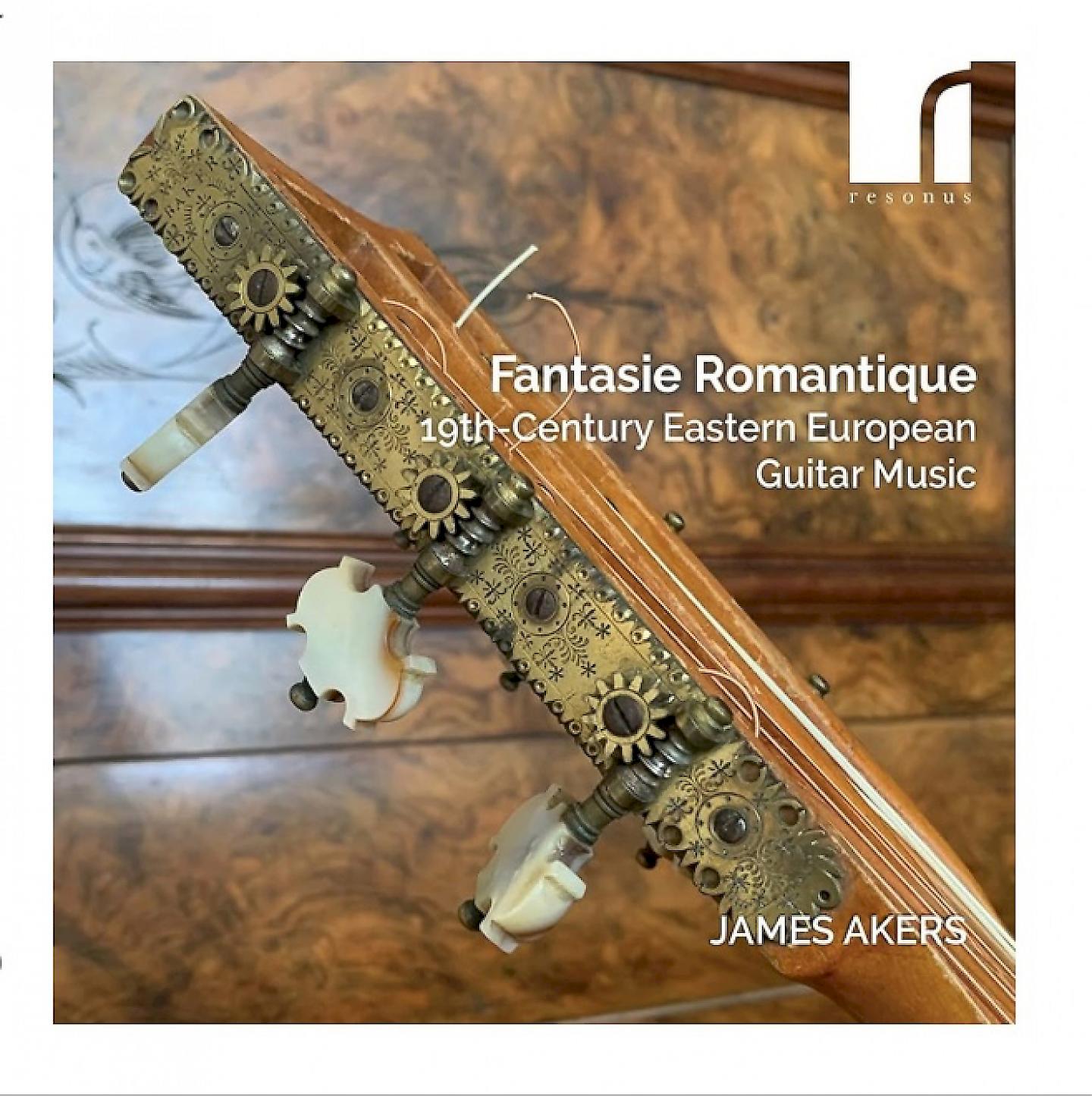
Fantasie Romantique is a collection of significant works by little-known Eastern European guitarist composers on the 19th century. With many of the works based on popular pieces of the day, including opera arias and folk melodies, it gives them an accessibility that belies their obscurity and underpins their virtuosity. Having been neglected for over a century, this recording attempts a reassessment of these composers and their work employing period instruments and techniques to render them as sympathetically and accurately as possible.
By Stewart McCoy from Early Music Review
"With this charming CD, James Akers continues his exploration of guitar music from 19th-century Ukraine and its neighbours. He plays music by seven composers on three different guitars: by Pietro Pettoletti (c. 1795-c. 1870) on a six-string guitar; by Johann Dubez (1828-1891), Nicolai Petrovich Makaroff (1810-1890), and Johann Kaspar Mertz (1806-1856) on an eight-string guitar; and by Mikhail Polupayenko (1848-1902), Johann Decker-Schenk (1826-1899), and Nicolas Pavilstscheff (1802-1879) on a nine-string guitar. All three instruments have their first six strings tuned the same as a conventional Spanish or classical guitar from Western Europe (EAdgbe’), and although some of these composers also wrote for the seven-string Russian guitar with its distinctive open G tuning (DGBdgbd’), none of that repertory is included on the present CD. The instruments with two or three extra strings may at first sight look weird, because the extra strings are fixed equidistant from the other strings at the bridge, but splay out away from the sixth string to their own separate nut leaving quite a gap between the sixth and seventh strings. I guess that this enables the instruments to feel the same at the nut end, and allows the player space for his left-hand thumb to reach round the neck to stop notes on the sixth string.
The harmonic palette of these guitarist-composers is at times somewhat restricted – take away all the tonic, dominant and diminished seventh chords, and there is not always so very much left – but the simple melodies decorated with appoggiaturas and acciaccaturas, occasional chromatic touches, flourishes of arpeggios up and down the neck, and a tessitura widened by extra strings in the bass and extra frets at the treble end of things, combine to create an overall effect which is pleasing to the ear, and would have provided easy listening for salon audiences. No doubt the listeners would have felt at home if they recognised popular folk melodies or well-known tunes from operas, and would have been impressed by the virtuosity of flashy, extrovert variations. Each item is quite short – a total of 39 tracks lasting a mere 63 minutes.
From Oleg Timofeyev’s interesting and informative liner notes we learn that Mikhail Polupayenko was born in Kharkiv, studied medicine in Kharhiv and Kyiv, and gave guitar recitals throughout the Ukraine. His last performance was in Bakhmut in 1902. His Fantasia on Zaporozyhe Themes consists of five short contrasting movements, now slow, now fast, ending with an exciting Allegro vivo where repeated riffs get faster and faster. It brings to my mind Cossack dancers wearing furry hats, with baggy trousers tucked into their boots, kicking out as they crouch down, and calling out with triumph and joy. One thing is for certain: Polupayenko’s music is pleasantly brought to life with Akers’ interpretation and his subtle contrasts of tone colour.
Polupayenko’s Fantasia was dedicated to his friend, the Austrian-born guitarist Johann Decker-Schenk, who moved to Russia in 1861. There is much variety in his music too: Ukrainische Weise is enhanced by some delicate harmonics, and the third movement of his Fantaisie Romantique has a tremolo effect sounding like a Neapolitan mandoline.
Unlike the other composers represented here, Johann Dubez was Austrian. He was a versatile musician who played the violin, harp, mandoline and zither, as well as the guitar. His flamboyant Fantaisie sur des motifs hongrois pour la Guitare consists of 11 short items, including Tempo di Marcia, a setting of the well-known Rácóczi March. The music for the Fantaisie is available online for free download from the IMSLP website, where you can see evidence of his extravagant style, including an Allegretto with fast, arpeggios up and down the neck of the guitar followed by five sextuplets, a passage of descending quavers, rounded off with a super-fast rising scale in broken octaves, diatonic for the first octave and chromatic for the second.
Virtuosity is a constant feature of the music of Nikolai Makaroff, and his Fleurs du Nord, Op. 3, No. 1, also available on IMSLP, are no exception. He finds various ways of catching a casual ear’s attention, including a tricky passage in “Down on Mother Volga”, where the melody is played entirely in harmonics. James Akers makes it all sound so easy, but it most certainly is not.
Pietro Pettoletti was born in Norway, lived for a while in Germany, moved to Sweden when he was 25, and eventually settled in St Petersburg. In his liner notes Oleg Timofeyev explains that Pettoletti’s Fantaisie sur une Romance favorite de Paschkoff, Op. 31, consists of variations on the song, “He fell out of love with me”, by Alexander Guriliov (1803-1858), and that there are no apparent links to the eponymous Paschkoff.
Akers ends his CD with Nicolas Pavilstscheff’s Grande Fantaisie sur un motif de l’Opera “La fiancée” d’Auber, Op. 25 – a splendid showpiece deserving much applause."
By Jim McCutcheon from American Record Review
"It is so refreshing to hear both familiar and unfamiliar repertoire performed eloquently in a clearly constructed program by such a skilled performer.
Scottish guitarist James Akers is a lecturer at the Royal Conservatoire of Scotland. He has performed worldwide, and this appears to be his third recording on the Resonus Label. His sensitive style reflects the expressive qualities of the Romantic period. Akers presents a program of music by both well-known and not-so-well known romantic period composers, mostly from Russian roots.
Lending to the authenticity of this recording, the music is performed on 3 different guitars, one with 6 strings built around 1840, one with 9 strings from 1890 and a replica of an 8-string guitar by Stauffer from the same period.
Akers plays well - his technique enables him to present a variety of moods and tempos, as he does very well in Nicolai Makaroff's Fleurs du Nord, consisting of Russian folk songs and variations.
Of interest to classical guitar aficionados is Akers's tone quality as he plucks the strings with the flesh of the right hand fingers rather than using the fingernails. This yields a gentle, almost vague attached of each note that was the norm before Segovia, who in the interests of volume and clarity, developed the use of the nails in the 20th century. Absent is the variety of timbres that is available when using the nail, but Akers makes up for this in part by his always interesting dynamics and articulation.
Liner notes by the Russian scholar Oleg Timofeyev are excellent and the perfect accompaniment to the music, reflecting discerning contemporary scholarship covering the Russian history of the guitar. Thank you!"

